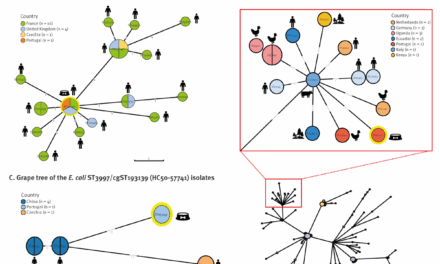Harvard Researchers Highlight the Benefits of a Plant-Forward Diet
A new study led by researchers at the Harvard T.H. Chan School of Public Health suggests that increasing plant-based protein intake could dramatically reduce the risk of cardiovascular disease (CVD) and coronary heart disease (CHD). Published in the American Journal of Clinical Nutrition on Monday, the findings highlight the benefits of replacing red and processed meats with plant proteins, such as legumes and nuts.
“Such a dietary pattern is beneficial not just for human health but also for the health of our planet,” the researchers emphasized.
Shifting the Protein Balance
The study investigates the ideal ratio of plant-to-animal protein for optimal heart health. Lead author Andrea Glenn, an assistant professor at New York University, explained that the current average American diet has a plant-to-animal protein ratio of 1:3. However, the study’s findings indicate that increasing this ratio to at least 1:2—or ideally 1:1.3—can significantly reduce the risk of CVD.
“To prevent coronary heart disease specifically, a ratio of 1:1.3 or higher in favor of plant proteins is recommended,” Glenn said.
Extensive Research Over 30 Years
The study analyzed 30 years of data on diet, lifestyle, and cardiovascular health from nearly 203,000 men and women. Over the study period, researchers documented 16,118 CVD cases, including over 10,000 CHD cases and more than 6,000 strokes.
Key findings include:
- Individuals with a plant-to-animal protein ratio of 1:1.3 had a 19% lower risk of CVD and a 27% lower risk of CHD.
- Those consuming 21% of their daily energy from protein, with a higher proportion from plants, experienced a 28% lower risk of CVD and a 36% lower risk of CHD.
Why Plant Proteins Are Heart-Healthy
The researchers attribute these benefits to the nutritional profile of plant proteins, which are rich in fiber, antioxidants, vitamins, minerals, and healthy fats. These nutrients contribute to improved blood lipid levels, lower blood pressure, and reduced inflammation.
“Replacing processed meats with plant-based proteins, particularly nuts and legumes, has shown significant improvements in key heart health markers,” the study noted.
Implications for Diet and Policy
The study underscores the importance of dietary shifts not only for individual health but also for environmental sustainability. By encouraging the consumption of plant proteins, both healthcare professionals and policymakers can address growing concerns about chronic diseases and climate change.
As awareness of the health benefits of plant-based diets continues to rise, this research provides valuable guidance for anyone looking to enhance their heart health through simple dietary changes.












